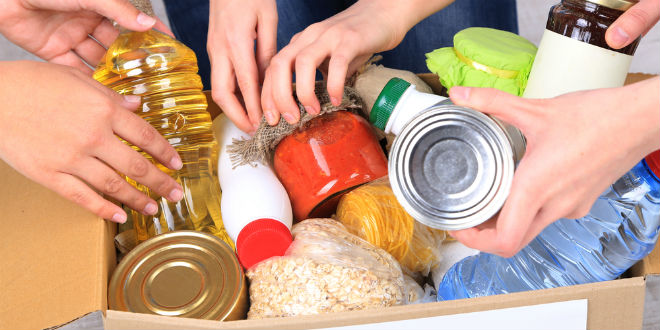Ruth [name changed] is a single mother of four children between the ages of four and eighteen. Her ex-husband refuses to make his child support payments. Therefore, Ruth and her children live off their National Insurance stipend – less than 3,000 shekels a month (About $860) – and through the support of the National Food Security Program, a joint venture of the Social Affairs Ministry and Colel Chabad.
“I suffer from depression,” said Ruth. “Worries about food put greater stress on my mental health.”
Ruth’s children survive on pasta and eggs. Though Ruth is studying to be a hairdresser, there are many days she is not motivated to get up in the morning and go to school. When she receives a food delivery of fresh fruits, vegetables and other staples from Colel Chabad, it gives her strength, knowing that there is someone who cares..
“Colel Chabad gives us a reason to smile,” Ruth said. “There is a reason to wake up in the morning when there is food to give the children.”
Ruth’s family is just one of the more than 100,000 Israeli households that suffer from food insecurity, according to statistics provided by Colel Chabad. In 2017, Colel Chabad fed more than 24,500 children through their various food security efforts.
In partnership with the Joint Distribution Committee, Colel Chabad has been designated by the Israeli government to take charge of eliminating hunger among Israel’s neediest. The organization works with more than two dozen municipalities to provide for the chronically dysfunctional, while empowering others to take control of their lives and achieve nutritional independence.
Colel Chabad’s programs include a network of soup kitchens, Meals-on-Wheels, groceries distribution, and a chain of non-profit supermarkets that stock some 600 staple grocery items under generic brands which are then sold to the customer at a savings of 40 percent below retail.
“We rely on Colel Chabad for at least half of our monthly groceries,” said Roi [name changed].
Roi and his wife, Mor [name changed] have two children ages 5 and 6. Both parents have inconsistent contract work and often are struggling to pay their bills. When economic challenges surface, their marriage plummets.
“We are always worried we won’t have enough to live on,” said Roi. “This has created tension in our marriage and made it difficult to function as a couple.”
The couple has been benefiting from Colel Chabad’s groceries distribution program.
Roi and Mor try to feed their children tuna, vegetables and whole grains, all of which are delivered to their doorstep as part of the distribution program. The groceries come unmarked and are delivered like a typical supermarket delivery, so Roi and Mor’s neighbors are unaware of their difficult financial situation.
“Colel Chabad gives us the ability to breathe,” said Mor.
The post With More Than 100,000 Israeli Families Suffering from Food Insecurity, Colel Chabad Comes to Their Aid appeared first on Breaking Israel News | Latest News. Biblical Perspective..
Source: Israel in the News


